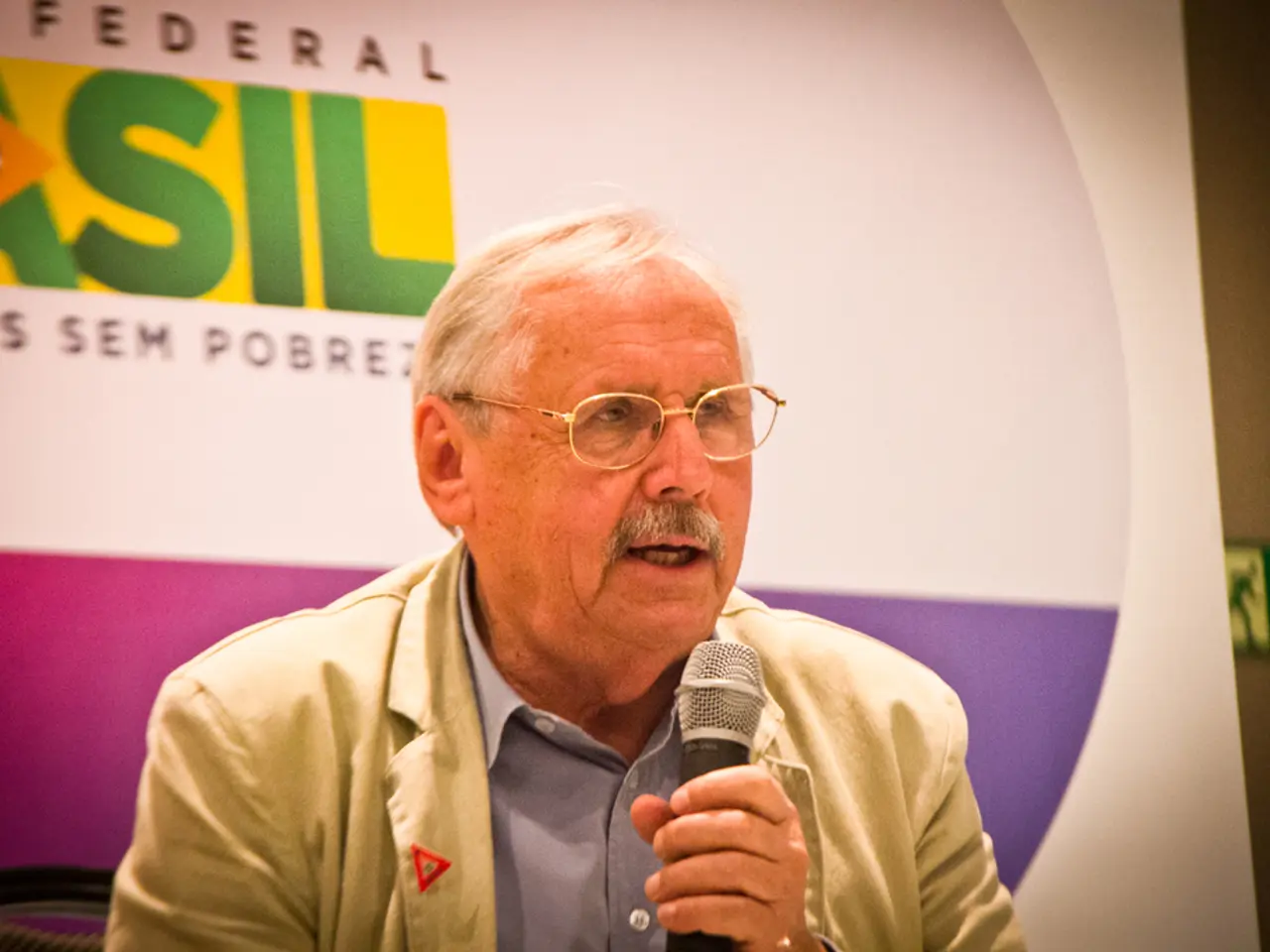Democratic Party veteran Jung secures position as new party leader
In a tightly contested election, Jung Chung-rae emerged victorious to become the new head of South Korea's ruling Democratic Party (DP). The election took place at the national party convention held at KINTEX in Goyang, northwest of Seoul, on August 2, 2025.
Jung secured a decisive victory, winning 61.74% of the votes, surpassing his sole rival, Rep. Park Chan-dae, who received 38.26% of the votes[1][2][3][4]. The election was a combination of votes from DP delegates (15%), dues-paying party members (55%), and a public poll (30%).
Jung received significant support from dues-paying members, garnering 66.48% of their votes, 46.91% from delegates, and 60.46% in the public poll. His emphasis on empowering the party base over focusing primarily on lawmakers and delegates played a crucial role in his strong support among the party members[2].
The election for the leadership of the DP came after the election of Lee Jae Myung as President of South Korea in June 2025. Unlike Lee, who received a higher percentage of votes in the presidential election, Jung did not achieve the same level of support[1][2][3].
At 60 years old, Jung Chung-rae is a four-term lawmaker and succeeds Lee Jae Myung as the leader of the Democratic Party. In his victory speech, Jung pledged to serve the will of the people and party members with dedication and expressed a commitment to reforms, including prosecutorial, media, and judiciary reforms by October[1][2][3].
[1] https://www.yna.co.kr/view/AKR20250802154600016 [2] https://www.koreaherald.com/view.php?ud=20250802001114 [3] https://www.reuters.com/world/asia-pacific/south-koreas-democratic-party-elects-jung-chung-rae-leader-2021-08-01/ [4] https://www.bbc.com/news/world-asia-61729528
In the wake of Jung Chung-rae's victory in the South Korea Democratic Party's leadership election, there is speculation about his policies and reforms, particularly in the areas of prosecutorial, media, and judiciary. His victory speech hinted at his commitment to serving the general public and pushing for change in policy-and-legislation, a subject of intense politics and general news interest.








